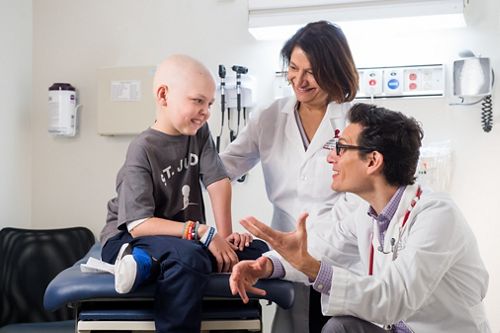Menu
Close
Back
Welcome to
Together is a new resource for anyone affected by pediatric cancer - patients and their parents, family members, and friends.
Learn MoreYour body image is how you view yourself or think that others view you. Body image helps teenagers define who they are.
Treatments may cause changes to the body of a child or teenager. These can be stressful to you and them. It is important to remember that most changes are temporary. There are things you can do to help your child cope with hair loss, weight changes, acne, scars, loss of limbs and other issues.

Your care team can help you talk to your child about hair loss.

Acne is a common issue that can cause teens to worry about their appearance. Talk to your care team about ways to reduce or treat acne.
Body changes may make your child feel odd or uncomfortable about the way they look. Some people may want to avoid their friends, school, public places, or having pictures taken. Try to respect your child’s wishes while continuing to set limits.
The internet, social media, phone, and writing and receiving letters are all ways your child/teen can have contact with peers and still have the privacy they desire. In time, most people adjust to these changes and return to their normal activities.
A parent or caregiver can support children and teens by:
The following Web site provides ideas and products to help cope with body changes.
—
Reviewed: September 2022